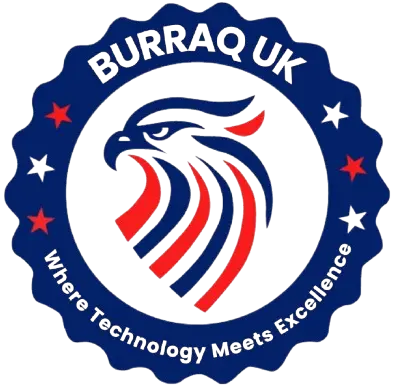Micro Controller BootCamp
The Microcontroller BootCamp by BURRAQ UK is an intensive, hands-on training program designed to equip students, engineers, and technicians with essential skills in embedded systems and microcontroller programming.

Aim of Micro Controller BootCamp
The aim of the Microcontroller BootCamp is to equip participants with practical knowledge and hands-on experience in microcontroller-based system design, programming, and interfacing.
Course Overview
Micro Controller BootCamp
Total Modules 6
Training Credits 18
Directed Learning Hours (DLH) 180
Course Code BUK1156
ducational Background:
- Students or graduates of Electrical, Electronics, Mechatronics, Computer, or Software Engineering
- DAE (Diploma of Associate Engineering) holders in Electrical or Electronics
- Technical professionals working in automation, electronics, or control systems
Required Knowledge:
- Basic understanding of electronics and circuits (voltage, current, resistors, etc.)
- Familiarity with programming fundamentals (C or C++) is helpful but not mandatory
| Course Code | Curriculum Title | Credit | DLH |
|---|---|---|---|
| BUK1156-1 | Introduction to Embedded Systems | 2 | 25 |
| BUK1156-2 | Microcontroller Architecture & Programming Basics | 2 | 25 |
| BUK1156-3 | Digital I/O & Peripheral Interfacing | 2 | 25 |
| BUK1156-4 | Timers, Counters & Interrupts | 2 | 25 |
| BUK1156-5 | Analog Interfacing & Sensor Integration | 2 | 25 |
| BUK1156-6 | Communication Protocols | 2 | 25 |
Module 1: Introduction to Embedded Systems
- What is a microcontroller?
- Difference between microcontrollers and microprocessors
- Overview of embedded systems architecture
- Applications in automation, robotics, and IoT
Module 2: Microcontroller Architecture & Programming Basics
- Overview of 8051 / AVR / PIC architecture (based on chosen platform)
- Memory organization, registers, I/O ports
- Introduction to embedded C programming
- Writing your first microcontroller program
Module 3: Digital I/O & Peripheral Interfacing
- Interfacing LEDs, push buttons, buzzers
- Reading digital inputs and sending outputs
- Debouncing techniques and basic logic
Module 4: Timers, Counters & Interrupts
- Understanding timers and delay generation
- Using counters for real-time applications
- Interrupt handling and ISR programming
- Practical timing-based tasks
Module 5: Analog Interfacing & Sensor Integration
- ADC (Analog-to-Digital Conversion)
- Interfacing analog sensors (temperature, LDR, potentiometer)
- Reading and interpreting sensor data
Module 6: Communication Protocols
- UART (Serial Communication)
- I2C and SPI protocols (basic overview)
- Serial communication with PC or other devices
- Data transmission and debugging
Module 7: LCD & Display Interfacing
- 16×2 LCD display interfacing
- Displaying sensor readings and messages
- Custom characters and formatting output
Module 8: Mini Projects & Practical Applications
- Real-world project development (e.g., temperature monitor, traffic light controller, smart home device)
- Circuit design and code integration
- Testing and troubleshooting
- Project documentation and presentation
- Engineering Students
- Fresh Graduates
- Technicians & Junior Engineers
- Academic Instructors & Lab Staff
- Hobbyists & Enthusiasts
- All Modules within this qualification are assessed internally by the approved training Centre and externally verified by BURRAQ UK. The program uses a criterion-referenced assessment approach to ensure that learners successfully meet all required learning outcomes.
- A Pass in any unit is granted only when the learner submits valid, reliable, and authentic evidence that demonstrates achievement of the assessment criteria. The Assessor is responsible for reviewing this evidence and confirming that the learner has attained the expected standard.
